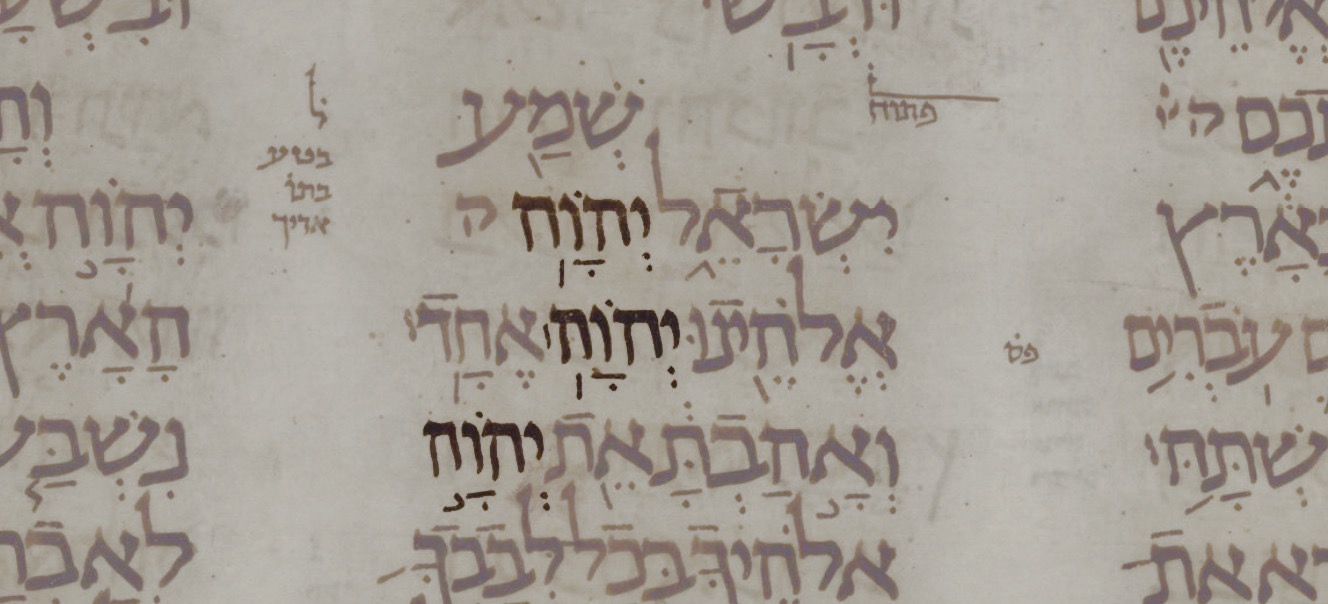jesus is the latinized name.
tell me, what was the name of god before creation?
EL, ELOAH [el, el-oh-ah]: God "mighty, strong, prominent" (
Nehemiah 9:17;
Psalm 139:19) – etymologically,
El appears to mean “power” and “might” (
Genesis 31:29).
El is associated with other qualities, such as integrity (
Numbers 23:19), jealousy (
Deuteronomy 5:9), and compassion (
Nehemiah 9:31), but the root idea of “might” remains.
ELOHIM [el-oh-heem]: God “Creator, Mighty and Strong” (
Genesis 17:7;
Jeremiah 31:33) – the plural form of
Eloah, which accommodates the doctrine of the Trinity. From the Bible’s first sentence, the superlative nature of God’s power is evident as God (Elohim) speaks the world into existence (
Genesis 1:1).
EL SHADDAI [el-shah-dahy]: “God Almighty,” “The Mighty One of Jacob” (
Genesis 49:24;
Psalm 132:2,
5) – speaks to God’s ultimate power over all.
ADONAI [ˌædɒˈnaɪ; ah-daw-nahy]: “Lord” (
Genesis 15:2;
Judges 6:15) – used in place of YHWH, which was thought by the Jews to be too sacred to be uttered by sinful men. In the Old Testament, YHWH is more often used in God’s dealings with His people, while
Adonai is used more when He deals with the Gentiles.
YHWH / YAHWEH / JEHOVAH [yah-way / ji-hoh-veh]: “LORD” (
Deuteronomy 6:4;
Daniel 9:14) – strictly speaking, the only proper name for God. Translated in English Bibles “LORD” (all capitals) to distinguish it from
Adonai, “Lord.” The revelation of the name is given to Moses “I Am who I Am” (
Exodus 3:14). This name specifies an immediacy, a presence. Yahweh is present, accessible, near to those who call on Him for deliverance (
Psalm 107:13), forgiveness (
Psalm 25:11) and guidance (
Psalm 31:3).
YAHWEH-JIREH [yah-way-ji-reh]: "The Lord Will Provide" (
Genesis 22:14) – the name memorialized by Abraham when God provided the ram to be sacrificed in place of Isaac.
YAHWEH-RAPHA [yah-way-raw-faw]: "The Lord Who Heals" (
Exodus 15:26) – “I am Jehovah who heals you” both in body and soul. In body, by preserving from and curing diseases, and in soul, by pardoning iniquities.
YAHWEH-NISSI [yah-way-nee-see]: "The Lord Our Banner" (
Exodus 17:15), where
banner is understood to be a rallying place. This name commemorates the desert victory over the Amalekites in
Exodus 17.
so you are wrong, it is not that simple.


